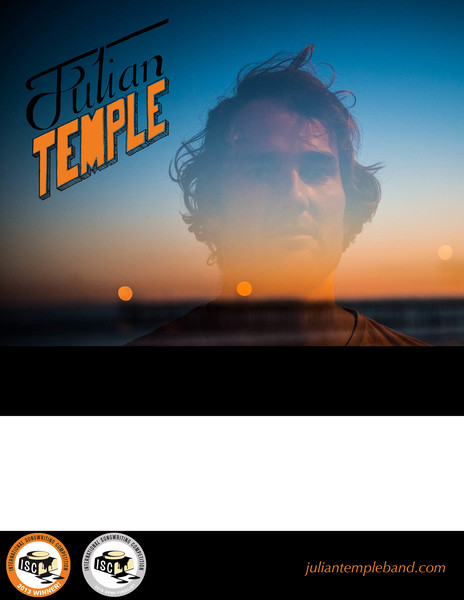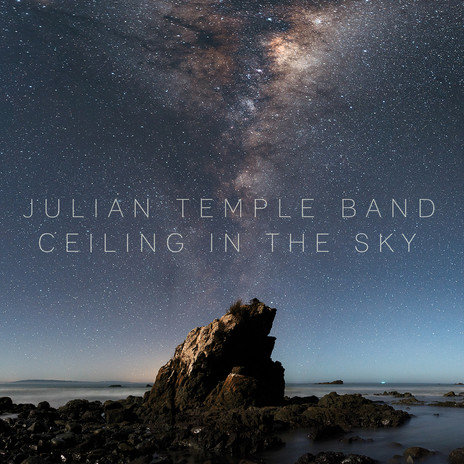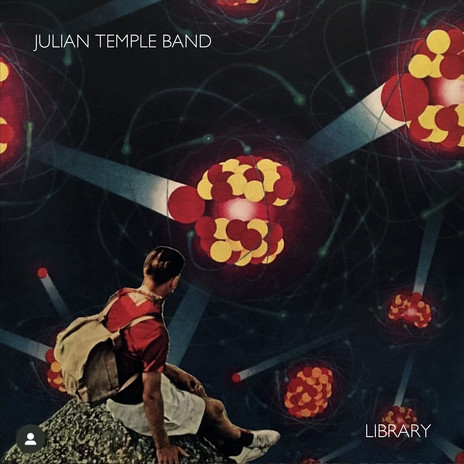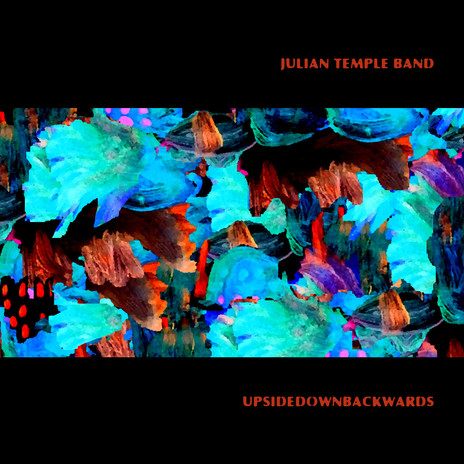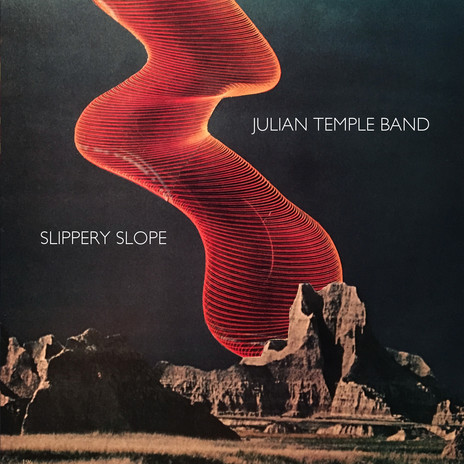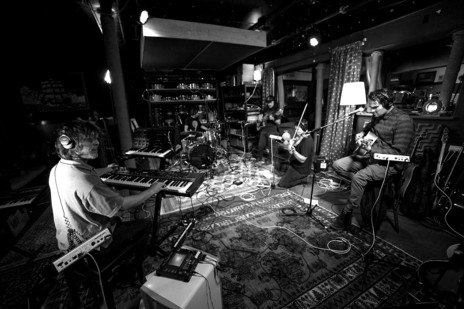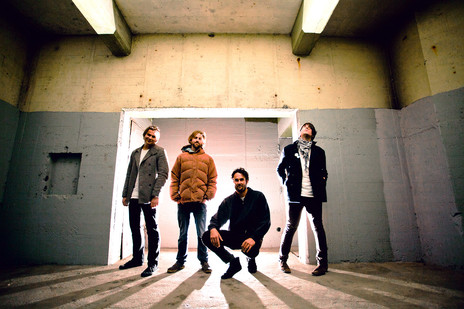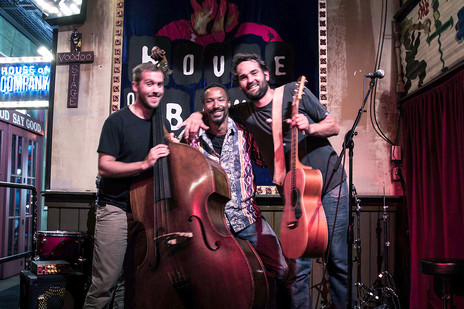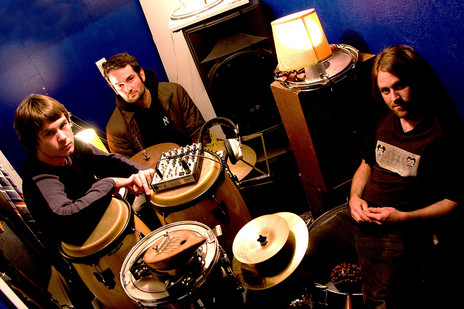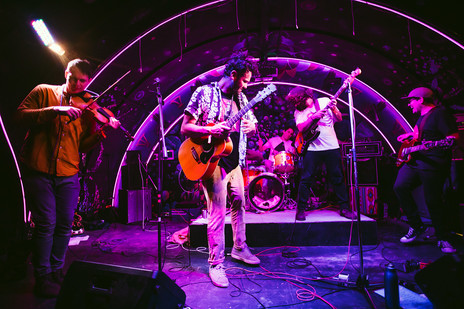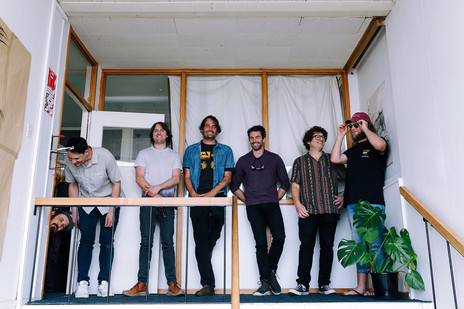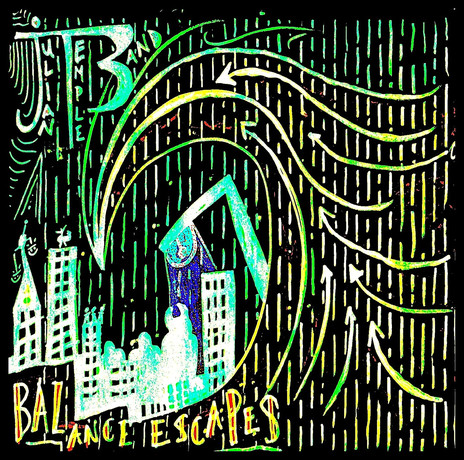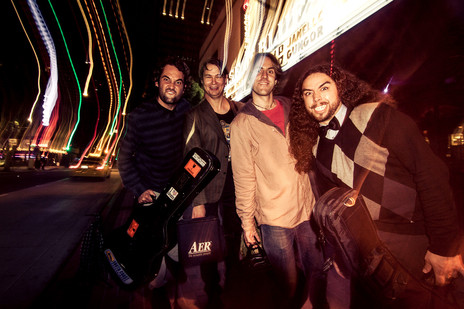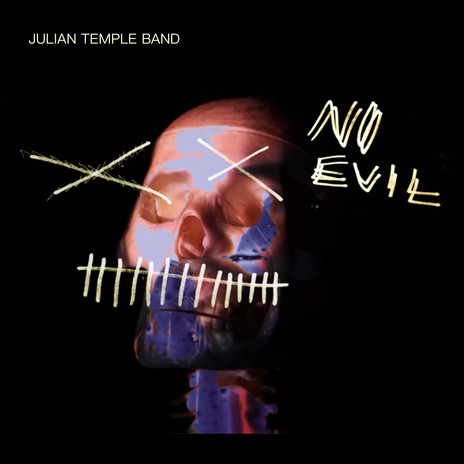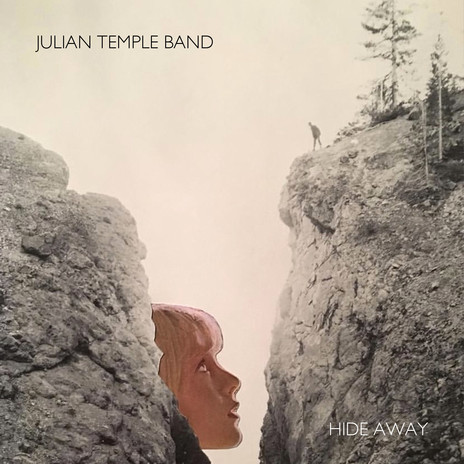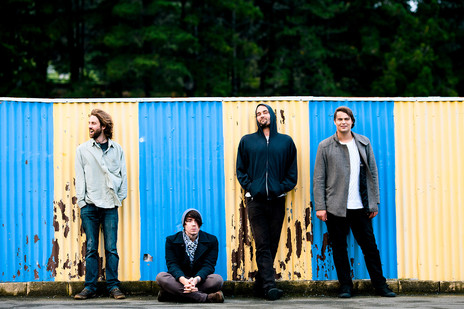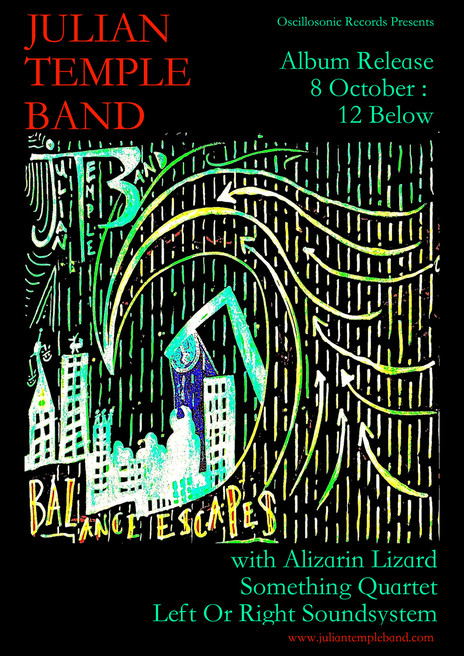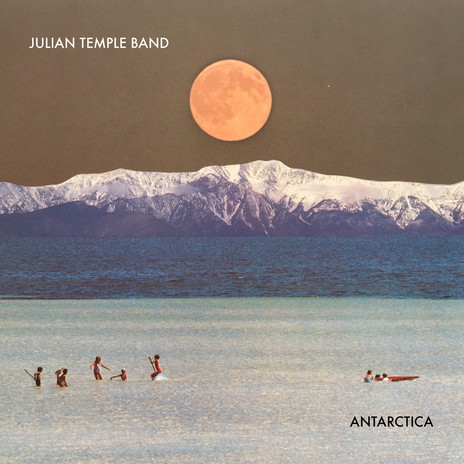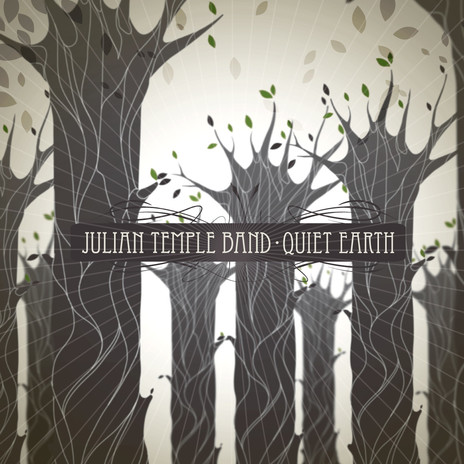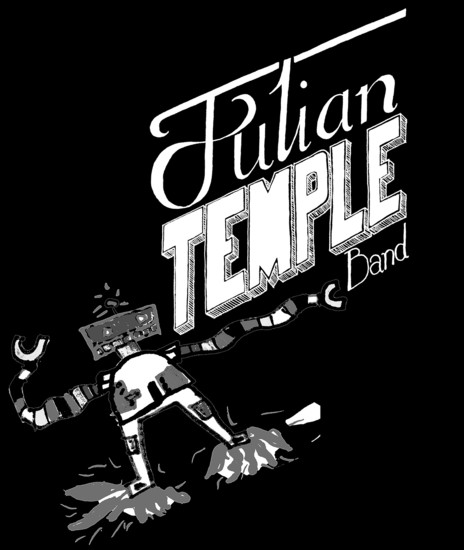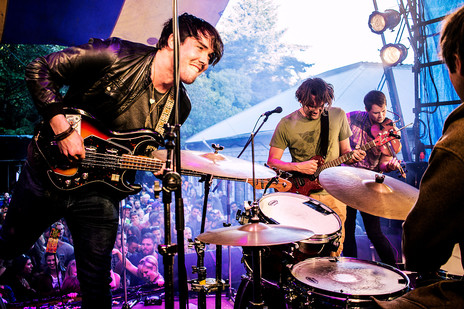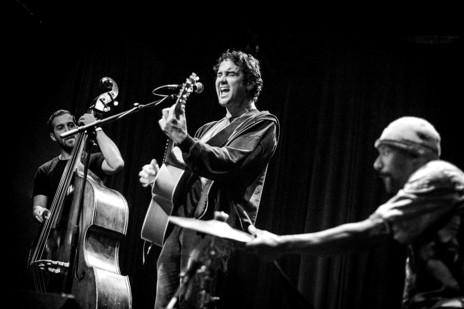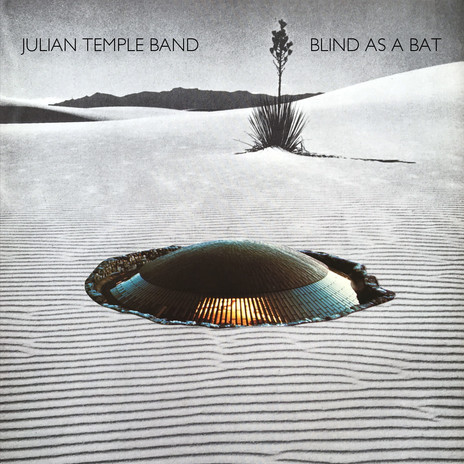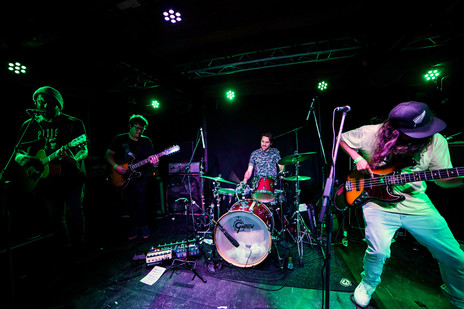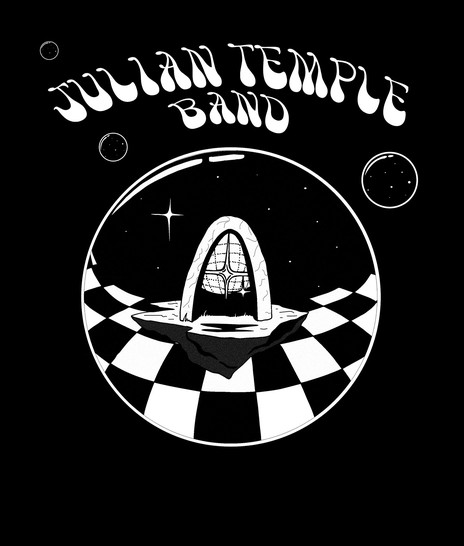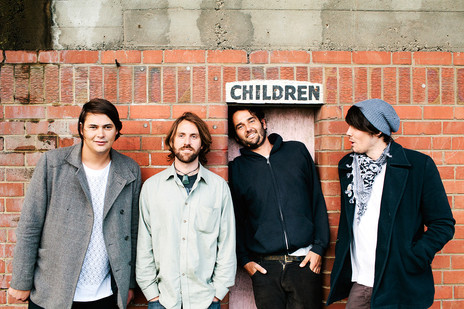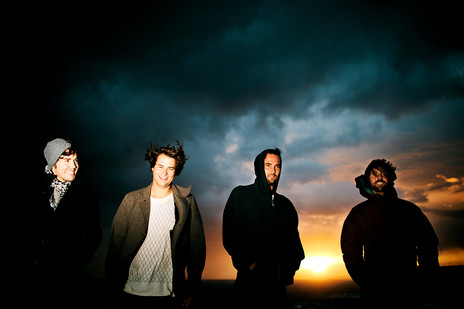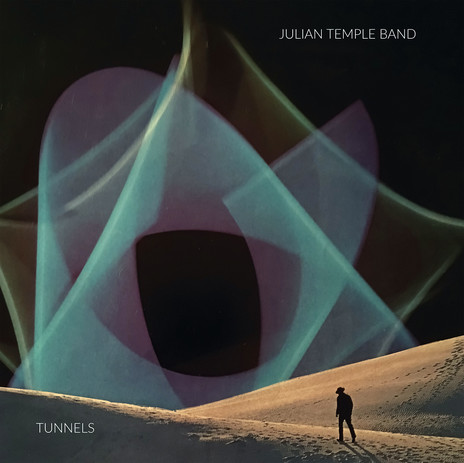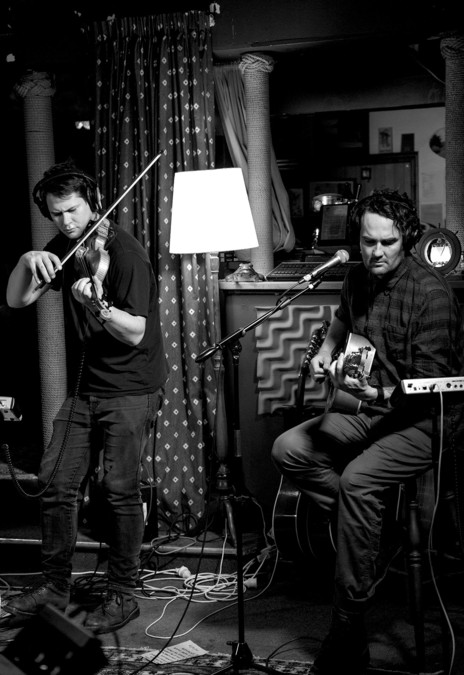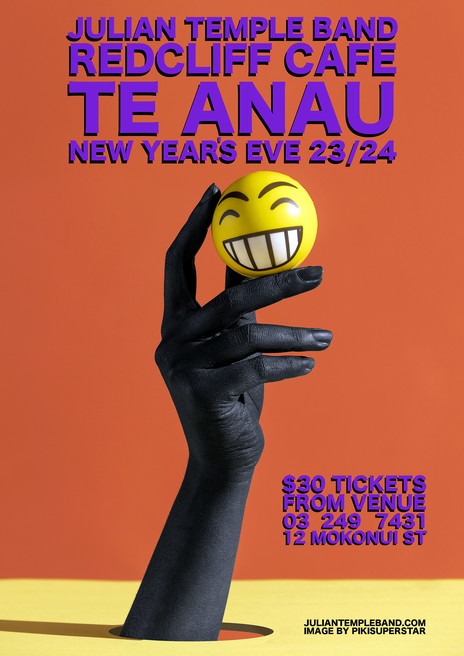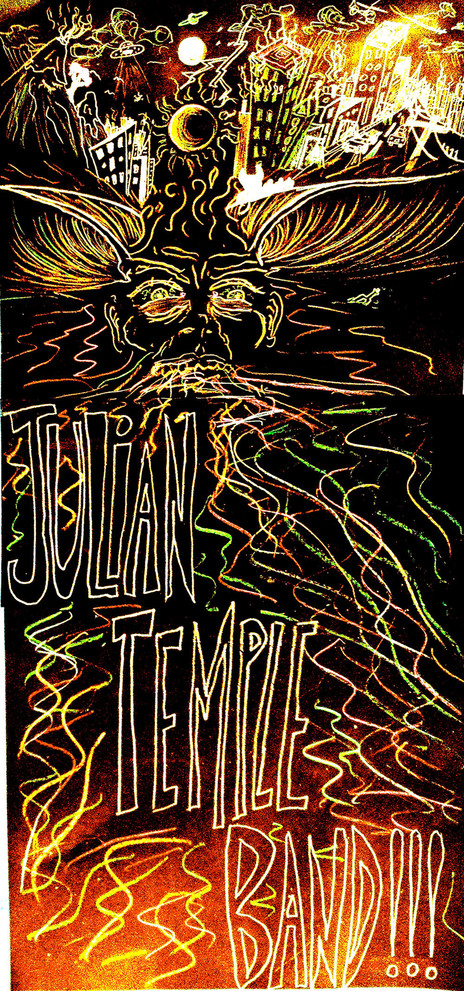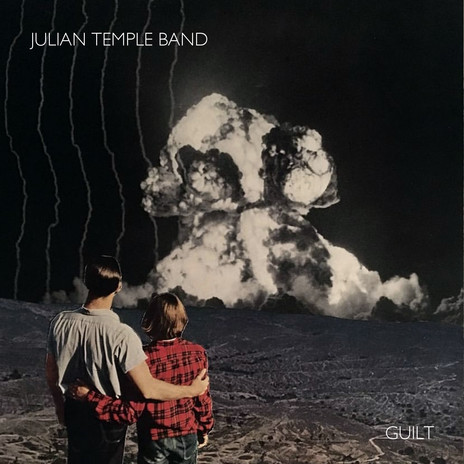However, the Julian Temple Band have never had much local traction and recognition. “We’re not poppy enough to be in the mainstream,” says Temple with frustration. “And not indie enough to get the hipsters on board. And it’s not barbecue reggae. With the way music is consumed now you can get all this crazy data, and our plays and streams are mostly from overseas.”
Julian Temple, a self-confessed “surf-bum”, grew up in a musical household in California, his mother an acclaimed Dixieland and boogie-woogie pianist and his father a classical lutist. His earliest memories are of building forts under the piano and watching the keys move.
Ironically, he didn’t get music lessons like his older brother – now a research biologist in the US – and sister in Northland, who home-schools her children and works in conservation. “I was the last and my parents gave up [on lessons] by the time I came of age. So I taught myself. But I’m the one who ended up pursuing it.”
As a child in the 80s, he heard Bowie and Talking Heads alongside the classical music and jazz in the home. His life changed after his parents separated and his father married a New Zealander. When he finished high school his father said he’d be moving to New Zealand “and I could stay or come if I wanted.
“I wasn’t planning on living here but just came on a trip, I was about 17 or 18 when I arrived. I was a surf-bum for about a year, just tripped around and worked hospo [hospitality] jobs and I’d told my dad at my sister’s graduation I wasn’t going to go to college. He said, ‘Well, do what you want’.
Julian’s father woke him up and said he’d organised an audition for him at Otago University
“But then we were on a surf trip around the South Island and he woke me up about 45 minutes beforehand and said he’d organised an audition for me at Otago uni for their music programme.”
By chance he was in Dunedin on the 20th anniversary of Flying Nun when the bands were playing and happened to see The Verlaines the night before the audition. “I found out one of the guys was taking the uni course and remember watching the band going, ‘It’s anybody but the singer, there’s no way that guy is a lecturer at the university’.”
The singer was (Dr) Graeme Downes. “I was intimidated by him because he had such a presence, so when I saw him walking down those stairs the next day I thought, ‘Oh no, it’s The Guy’.”
Temple played Downes some of his original songs but had to admit he hadn’t had music lessons and couldn’t sight read. Downes accepted him on the basis of his original songs and said bridging courses would help him pick up the necessary understandings.
“He liked my quirky chromaticism because I was playing interesting chords and not normal structures but he settled on my lyrics.
“He was a great mentor and I learned so much from Graeme. My songwriting was trash when I walked into that university, he was harsh but really honest. He’d go, ‘That’s shit’, not in an emotional way, just honest. Then he’d then say, ‘What about trying this?’ He made me think outside the box.”
Temple admits he knew very little about the music culture of Dunedin and the only song from Dunedin he’d heard was ‘She Speeds’ by Straitjacket Fits. “That got stuck in my head. I was blown away when I found out they were from Dunedin.”
During his first year he busked regularly (“a good way as a uni student to make some extra coin”) but hooked up with bassist Matthew Brook and drummer Paul Mclennan-Kissel (aka PMK) to form a band.
Paul Mclennan-Kissel has been in the Julian Temple Band since the beginning.
Mclennan-Kissel is in the Julian Temple Band to this day. “He’s my stalwart, possibly one of the best drummers I’ve ever seen let alone been able to play with. He’s so musical, not your average drummer at all. He’s the ground of the whole project.”
The trio played local bars, built a small student following then recorded an album, In Sea, in 2006. Then, they “went straight to the States which was bizarre, we buggered off.
“We just thought it would be the cool thing to do. I went ahead and got gigs, mostly in California but we also played in Mexico. Then we came back and did a New Zealand tour. It was big hurrah and definitely welded us together as a band.”
The Quiet Earth album followed in 2009, then Balance Escapes (2010) and his solo album Nowhere Fast (2011) written for his post-graduate diploma and for which he arranged and orchestrated violins and horns.
Someone talked him into recording it properly for release but “I took it down a year or two later although a lot of those songs made it onto the band’s Upsidedownbackwards [2013]”.
Highly critical of his own writing, Temple says many of his early songs are locked in the place and mood when he wrote them, only two or three have stood the test of time, “the rest I never want to hear again”.
But the band was incrementally expanding and a significant change occurred with Upsidedownbackwards when classically-trained violinist Alex Vaatstra joined the band. “Alex is the spice, such an incredible musician. He has that classical background and has played with Orchestra Wellington, the Dunedin Symphony and others. He brings that wailing violin which is avant-garde and textural and really makes it different.”
Temple had also started to listen more widely and when he was back in the US for 18 months discovered Americana and artists he’d heard about but never listened to: “I grew up with punk rock and Nirvana, the Pixies and that stuff so I thought back in the States I’d check out folk singers and people like Townes Van Zandt.”
Visiting the United States, Temple played 250 solo shows – while also doing surf coaching.
He played 250 solo shows – while also doing surf coaching – which toughened up his writing and taught him how to dispense with weak material. He wrote the bulk of the band’s Ceiling in the Sky (2015) at that time but is again highly self-critical: “I could have scrapped about six songs off that, the next one [Antarctica in 2018, recorded at Chick’s Hotel in Port Chalmers] was better, but this one Tunnels is definitely our best work yet, for sure.”
Temple is too hard on himself: right from the start his songs and the band have received favourable reviews. At Bandcamp you can read this from Happy Mag in Australia: “Their tunes are like sweat-soaked fever dreams; surreal hallucinations that leave you feeling as though you’re staggering through a slice of vast and desolate desert. There’s a coldness in their songs, but an equally powerful warmth to counteract.”
Of their early albums Zeitgeist in Britain said they were “like the loudest blues band in the world whispering”, The New Times in the US described Temple as “quite the showman with a rambunctious live show”, and Radio Herde in the Netherlands said, “You can’t predict the songs. In each moment something new.”
At home there have been a few similarly positive reviews. Early on Groove Guide wrote “Julian Temple has an organic sense of feel that could only come from an artist that has released three albums, and tirelessly toured the country for close to a decade. Uneven verse lengths, unconventional timings and strange song structures, but in a way that sounds natural and uncontrived – the unfathomable mathematics of the ocean.”
The band as a unit has been equally hailed (“What a sound! The musical interplay is truly excellent,” said Highlands FM in Australia) and there were those close calls in the International Songwriting Competition, although Temple plays them down. “I couldn’t believe we got in the finals with [the song] ‘upsidedownbackwards’ and couple of years later got in the semifinals.”
Although this success hardly registered in the media here. Julian Temple Band albums have charted, albeit briefly sometimes. Upsidedownbackwards went to No.7 although their latest Tunnels hasn’t. Perhaps because it’s not poppy or indie enough, isn’t a reissue and it certainly not barbecue reggae. It comes from a personal place .
Tunnels, sometimes obliquely, deals with his mother’s sudden descent into dementia: “Usually these things happen over a long period but hers was almost immediate, a little bit forgetful at first but within a few weeks she was completely gone.
“I started writing the album before my mum had her crash, maybe five or six years ago. I saw her a couple of times in 2019 and when I got back here a couple of months later the whole world changed [because of Covid] so then I had all this time when we couldn’t play as a band. So I just chipped away at it.
“I’d never been able to to do that before, we were always rushed, drinking too much coffee. But we took our time with this one.”
‘Tunnels’ (2023) is a collection of crafted, powerfully played songs.
None of this suggests approachable pop music but Tunnels is a collection of crafted, powerfully played songs. Don McGlashan appearing as guest horn player on the brooding, throaty, Waitsean and moving ‘Guilt’, which packs a lot of powerful imagery and musical punch.
It’s music for a mature audience with a deep-seated unease enhanced by violin and orchestration on a collection he describes as having “a lot of little gems, these crazy motifs pop up throughout and the lyrics make it almost a concept album, but not quite”.
Temple’s mother is alive but, although incoherent, “can still sing a song perfectly and play the piano beautifully and vamps away at her old ragtime. She talks some strange stories but then can sing a song perfectly.”
The Tunnels album is also a tribute to the band he is proud of, the current line-up of Vaatstra and PMK alongside some steady companions. They are bassist Steve “Seedy” Marshall who is “solid, in one of my favourite bands of all time, Left or Right, like a doom-reggae band which crosses over between Black Sabbath and roots reggae,” and fellow guitarist/engineer Andy Straight. “Andy’s a new addition and I’ve always wanted that other sonic element because I don’t know how to play electric guitar that well. I’ve always wanted that wailing, Joey Santiago-style dirt [of the Pixies] in there.”
Keyboard player Logan Hampton is “one of the most intelligent people I know and the keys lay like a hammock for the band to sit on.” Hampton lives in Melbourne and when he comes over he and Temple play duo shows.
At 42, Julian Temple is serving a life sentence in music: he has three children and a three-part day job servicing cafe machines for a Wellington roaster company, as a coffee sales rep and a trainer for the baristas. He travels all over the South Island for work and gets to do gigs on the side “because I don’t have to pay for the petrol”.
“It’s a funny landscape and there’s not much way to make a living at it, I can see that now,” he says, reflecting on almost 20 years of making music and touring, never having applied for financial assistance and just plugging away.
“It’s always getting better and we’re getting more people to the shows every year. It’s a slow burn but I’d rather that than explode overnight and burn out.”
